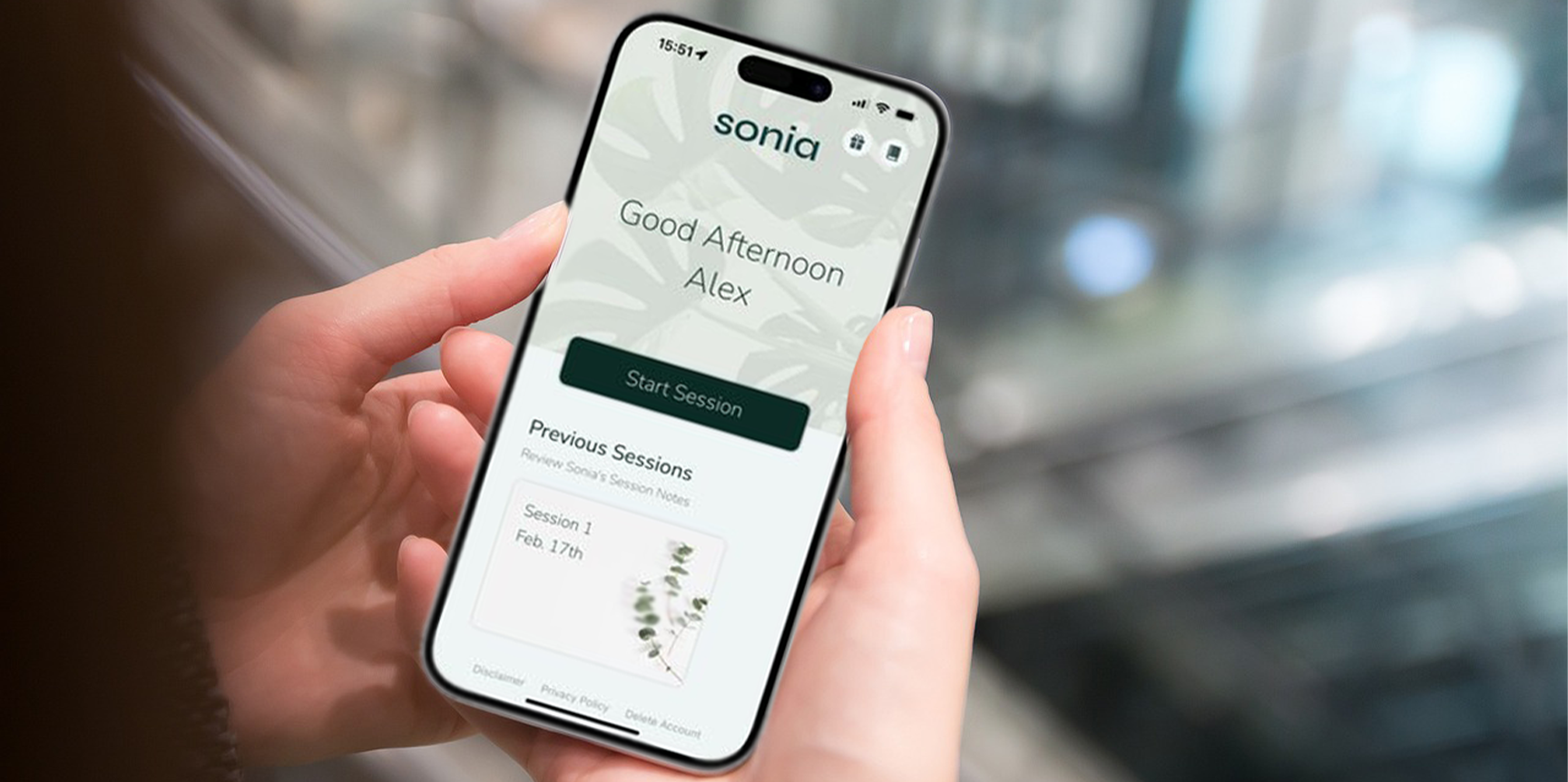As technology increasingly enters mental health care, Sonia’s AI chatbot revolutionises therapy. This mental health chatbot provides personalised support using powerful artificial intelligence and sympathetic interaction.
According to a study, 80% of individuals who have utilised OpenAI’s ChatGPT for mental health advice consider it to be a viable alternative to traditional therapy. On the other hand, a distinct report discovered that chatbots can be effective in alleviating specific symptoms associated with anxiety and depression.
However, it is widely recognised that the human connection between the clinician and the client is one of the most reliable predictors of success in mental health treatment.
Read also: Butterflies social media changes AI Character Interactions
How Sonia’s AI Therapist App Changes Mental Health
Three business owners—Dustin Klebe, Lukas Wolf, and Chris Aeberli—support cognitive treatment chatbots. Within an iOS app, their company, Sonia, provides an “AI therapist” to whom users can text or discuss various themes.
“To some extent, building an AI therapist is like developing a drug, in the sense that we are building a new technology as opposed to repackaging an existing one,” Klebe, Sonia’s CEO, told reports in an interview.
In 2018, the three met at ETH Zürich while studying computer science and relocated to the U.S. to study at MIT. They regrouped to establish a scalable tech firm after graduating. That startup was Sonia.
Sonia uses generative AI models to analyse and respond to app users’ “therapy sessions” sentences. A cognitive behavioural therapy-based app, which costs $20 per month or $200 per year, assigns “homework” to assist users in identifying significant stresses through talks and visualisations.
Klebe says Sonia, which hasn’t been FDA-approved, can treat depression, stress, anxiety, relationship challenges, and poor sleep. Klebe claims that Sonia has “additional algorithms and models” to detect “emergencies” and connect users to national hotlines for more dangerous situations like violence or suicide.
Sonia, a startup that uses language models to provide mental health care, has hired a cognitive psychology graduate and is recruiting a full-time clinical psychologist.
The startup uses seven additional language model calls to analyse situations from therapeutic perspectives. Sonia is committed to storing only the minimum amount of personal information for therapy but does not specify where or how long conversation data is stored.
Sonia’s Path to Partnering with Mental Health Organizations
Y Combinator, Moonfire, Rebel Fund, and SBXi have invested $3.35 million in Sonia, which has 8,000 users and is in talks with undisclosed mental health organisations to offer it through their online portals. Sonia has good App Store reviews, with some customers saying they find it simpler to talk to the chatbot than a therapist.
Chatbot tech is limited in its advice quality and may not recognise subtle signs of problems. Its responses are often biased, often influenced by Western biases, which can miss cultural and linguistic differences in mental illness expression. In worst-case scenarios, chatbots can go off the rails, as seen with Tessa, a chatbot triggering people with eating disorders. Klebe emphasised that Sonia isn’t trying to replace human therapists.
Read also: Paradromics’ $100,000 neural implant in 2025
“We are building a solution for the millions of people who are struggling with their mental health but can’t (or don’t want to) access a human therapist,” Klebe said. “We aim to fill the gigantic gap between demand and supply.”
A government report shows that over half of the U.S. lacks adequate access to mental care, and 42% of adults with mental health conditions cannot receive care due to financial constraints.
A study in Scientific American suggests therapy apps catering to the “worried well” can be more cost-effective than traditional appointments.
“It’s a lot easier to start using Sonia than seeing a human therapist, which entails finding a therapist, being on the waitlist for four months, going there at a set time and paying $200,” he said. “Sonia has already seen more patients than a human therapist would see throughout their career.”
I hope that Sonia’s founders remain transparent about the issues the app can and cannot address as they build it out.
















